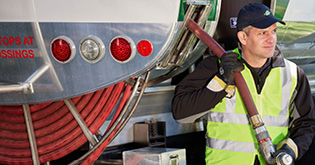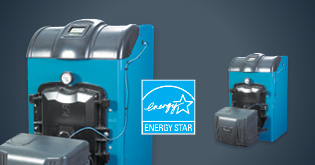- My Account:
- Sign In
- Register
- Make Payment
Sales 877.359.2151
Service 973.366.3100
Sales 877.359.2151
Service 973.366.3100

Winter storm checklist.
 Be prepared for winter storms and use our checklist to keep you and your home safe and warm.
Be prepared for winter storms and use our checklist to keep you and your home safe and warm.
BEFORE THE STORM
Listen to the forecast
- A winter weather “watch” is issued when severe wind chill, a blizzard or storm is forecast within 24 to 72 hours.* If you live in the watch area, prepare for whatever is forecast and stay on top of any weather developments.
- A winter weather “warning” means hazardous weather is forecast within 24 hours* that may threaten people and property. During a warning, stay home if and if you must leave, exercise extreme caution.
Prepare your home
- Use storm windows to protect and insulate your home
- Clear gutters of leaves and debris to prevent flooding or ice dams
- Make sure smoke and carbon monoxide detectors are installed and working
- Check heating fuel levels
- Make sure heating equipment and chimneys have had their annual inspection
Get vehicles ready
- Make sure gas tanks are full
- Check antifreeze levels
- Move your vehicle
- Make sure you have a car emergency kit, including flashlight, water, snacks, extra hat, socks, gloves, first aid kit, rock salt, flares, shovel and tire chains
Stock up on supplies
- Several day supply of water (1 gallon per person per day)
- Non-perishable food
- Any medications
- Flashlight
- Batteries
- NOAA weather radio
- Fire extinguisher
- Rock salt
- Snow shovel or snow removal equipment
WHEN THE STORM HITS
Do not leave your house
- Watch or listen for any important weather changes
- Travel only if absolutely necessary.
Plumbing
- Prevent pipes from freezing by leaving faucets slightly open and keep sink doors open to circulate warm air.
- If pipes burst, know where the water shut-off valve is and how to turn it off.
Power outages
- Have a backup generator? NEVER use it inside your home, garage, basement, crawl spaces or other enclosed or partially enclosed areas, even if ventilated.
- Never leave lit candles unattended
Pets
- Bring your pets indoors or to a warm sheltered area
- Make sure they have easy access to food and water
AFTER THE STORM
Exercise caution
- Icy surfaces outdoors can be a problem whether walking or driving
- If shoveling snow or ice, warm up first, take breaks and don’t overexert or push yourself beyond what you can handle
- Stop physical activity immediately if you experience dizziness, nausea, excessive sweating or shortness of breath
- Protect yourself from hypothermia and frost bite by dressing in warm layers and keeping exposed skin areas covered.
As your local home service experts, our team are also here for you, any time of the day or night, in any weather.
*Source: National Weather Service




.jpg?sfvrsn=ba81b4e4_1)
.jpg?sfvrsn=43a0195a_3)